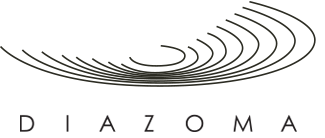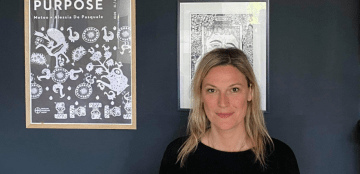How did you enter your profession?
As a graduate of the Faculty of Philosophy in the University of Athens I have always been inspired by the cultural sector. Passionate about museums and their important role in cultural and social policies as places for learning, inspiration, democracy, integration, understanding and pleasure, I followed a Masters Course (MA) at the University of Athens in Museum Studies. This was with the collaboration of Department of History and Archeology, and Conservation of Cultural Heritage.
For the last ten years I have been actively engaged in cultural management through my experience at the Ministry of Culture and as an active member of European cultural projects and communities. My dream is one day to create my own museum, The Museum of Philosophy, curating and spreading ideas and values that change the world.
What are you currently working on?
Currently I am completing my PhD academic research into cultural diplomacy as a soft power in the Faculty of Political Studies and International Relationships. I am also working as a museologist and Curator of Public Engagement at the Archaeological Museum of Patras, and at the Ministry of Culture, responsible for audience development, communication and educational activities, exhibitions and cultural tales in the region of Western Greece.
I am an elected member of the Directory Board of DIAZOMA, a movement of people sharing the same vision for cultural heritage. Our mission is to help, protect, restore and promote monuments especially ancient theatres by mobilizing both citizens and state. I am actively engaged in European programs such as Creative Industries and new models of participatory cultural governance.
What are some of the challenges of your role? What are some of your favourite elements?
Ι would like to be able to communicate the idea that culture is the living cell for strong ‘immune’ societies. Culture, both tangible and intangible, together with the innovative tools of digital transformation, can promote mutual understanding and intercultural dialogue among citizens and countries. Α big challenge for me is managing to engage an audience less likely to attend or participate.
My experience as a curator, of working with different people’s cultural content, has been the part that I love more! From my point of view, cultural organisations, associations and communities must be seen as living laboratories for social innovation, as contributors to sustainable growth, cultural democracy and peace. The cultural heritage sector must be a shared resource and a common place. Our world needs a beating cultural heart to survive!
What was your motivation for joining the Members Council?
In last year, the consequences of the COVID-19 global pandemic have revealed the vulnerability of the cultural sector in the world. The reports underline the severity challenges faced by the sector globally.
I believe in the vision of Europeana, and now is the moment to encourage Europeans and all world citizens to place culture, together with education, at the heart of recovery and revival. As a source of creativity, innovation and enjoyment, Europeana Initiative projects can shape the global cultural citizenship identity.
What do you plan to do as a Members Councillor?
I am really excited! At our recent ENA Member’s Council meeting, I had the chance to meet, in the digital space, other members and get to know the great work that has been done so far. I would like to contribute to all discussions and documents about Europeana’s strategies and policies to create a more participatory model. Europeana has the potential to stimulate creativity and innovation and generate community cohesion with a broader participation in the co-creation of its cultural content. And I am here to work in order to share and spread this mission!

